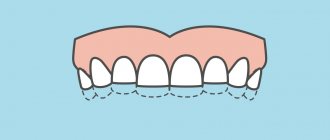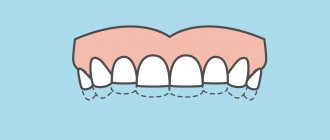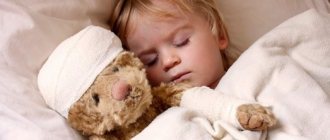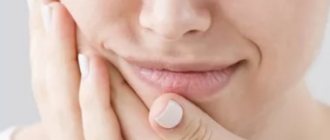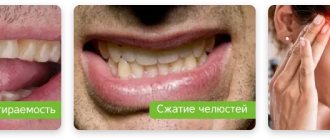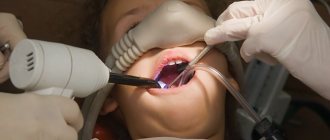Many children sometimes grind their teeth at night, frightening their caring parents. Some babies can grind their teeth for several minutes, others make isolated grinding noises. This phenomenon is medically called bruxism. Let's figure out whether this is dangerous to health, and what reasons can provoke this condition.
Very often, the fact that a child grinds his teeth in his sleep is explained by the presence of worms. Many parents, as soon as they hear that their child is making characteristic sounds, immediately run to the pharmacy and buy drugs that help get rid of helminths. But more often than not, such actions are not able to lead to a positive result, since the opinion about the presence of parasites is most often a common misconception. Even if you have any suspicions that your baby may have intestinal parasites, it is better to consult a doctor, submit the necessary results and wait for his findings. Remember that uncontrolled use of anthelmintic drugs is not as safe for the body as it seems at first glance. When such drugs enter the baby’s body, they not only have a toxic effect on parasites, but also on other cells. In addition, in most cases, children grind their teeth in their sleep for completely different reasons.
Minor defect?
Grinding of teeth in a child may seem like a minor deviation from the norm only at first glance. It’s good when this phenomenon is temporary and at the age of 5–6 years, bruxism in a child goes away on its own. But if your first-grader continues to grind his teeth at night, don't hesitate to seek medical help. Otherwise, even the permanent teeth that will replace the milk teeth will be at risk.
Doctor Komarovsky
The problem of teeth grinding in their sleep in children was touched upon at one of his seminars by pediatrician, author and TV presenter Evgeniy Olegovich Komarovsky, confirming, in particular, that childhood bruxism is in no way connected with infection with worms. Why did such an absurd superstition arise? This is probably one of those questions that we will never be able to definitively answer. Irrationality is inherent in the very nature of superstitions. Also, the famous children's doctor urges not to get carried away with overzealous treatment of bruxism, which, in his opinion, is not a disease and will go away on its own.
«
Symptoms of childhood bruxism
- Headache in the morning
- Feeling of fullness in the ears
- Complaints of pain in the back
- Unmotivated irritability and tearfulness
- Restless sleep with frequent crying
- Lack of appetite
- Rapid tooth wear (this symptom can only be determined by a dentist during an examination!)
Attention!
A high temperature and grinding of teeth in a child may be a reaction of the body to a routine vaccination carried out the day before.
Causes of teeth grinding in children
Switching to artificial feeding
Teeth grinding in a child aged 8–10 months may be associated with early weaning from the mother's breast. This is extremely stressful for the baby. According to statistics, it is male “artificials” who most often suffer from bruxism. In this regard, increased attention should be paid to ensuring that the baby receives breast milk in full for as long as possible. To do this, the mother is advised to maintain a drinking regime, regularly express excess milk and avoid worries.
Teeth cutting or changing teeth
Teeth grinding during the day, which parents can notice by a specific sound, usually appears after the eruption of another baby tooth. The child is simply curious about new sensations, and he “plays”, deliberately creating friction between the teeth. As a rule, he quickly gets bored with this, but years later, when baby teeth are replaced with permanent ones, the picture may repeat. Read more about teething in this article.
Dental pathologies
When a child turns one year old, teeth grinding may indicate the presence of some abnormalities in the functioning of the dental system. An incorrect bite, inflammation of the jaw or pathological development of the joint are reasons to “grind” in order to more conveniently position the teeth in the mouth. Only an orthodontist can determine the specific cause. Read more about this here.
Stressful situations
If the day has come and a child of 2–3 years old does not stop grinding his teeth, this is a signal of a problem in his nervous system. In this way, the baby reacts to the stress he has experienced. The trigger for this can be both strong negative emotions (separation from a favorite toy, starting a visit to kindergarten or “eviction” from the parents’ bed), as well as positive ones that lead to strong overexcitation (outdoor games, the arrival of relatives with other children, etc.) .
Sleep disturbance
If a child has difficulty falling asleep, snores, mumbles in his sleep, suffers from enuresis or somnambulism, this may cause teeth grinding at night. Inadequate sleep negatively affects the child’s body and is a trigger for spasms of the masticatory muscles. The task of parents is to ensure that the baby gets enough sleep.
Wrong diet
Sometimes the reasons for teeth grinding in a child’s sleep lie on the surface - the parents themselves are responsible for this, having failed to create an optimal feeding regime. In order not to provoke involuntary contractions of the masticatory muscles, the last meal should be completed 2 hours before going to bed. Kefir is allowed 1 hour before bedtime.
Avitaminosis
Are you looking for reasons why your child grinds his teeth during the day? Analyze how much vitamins and minerals he receives from food during breakfast, lunch, afternoon snack and dinner. A deficiency of B vitamins, coupled with insufficient intake of magnesium and calcium into a growing child’s body, can lead to overstrain of the masticatory muscles. Only a pediatrician should determine the required dosage of a particular vitamin after an examination.
Upper respiratory tract diseases
Coughing and grinding of teeth in a child along with nasal congestion are a characteristic manifestation of sinusitis or bronchitis. In this case, bruxism will go away as soon as the disease that caused it is cured. If you notice that your cough does not go away, despite all the traditional measures taken to combat it, then do not delay a visit to an infectious disease doctor.
ENT diseases
Grinding of a child's teeth at night is also one of the main symptoms of adenoiditis - inflammation of the tonsils. The complex of unpleasant sensations caused by an increase in the size of the adenoids literally forces you to grind your teeth. The first thing that should alert parents in this situation is a constantly slightly open mouth.
The famous pediatrician Komarovsky claims: bruxism in children is more likely to occur if their parents suffered from it in childhood!
Bruxism: treatment in adults
In many cases, treatment is not absolutely necessary.
As we have already said: in many children, bruxism goes away on its own without treatment by adolescence. Additionally, most adults do not clench their teeth so severely that it requires therapy. However, it is very important to determine how serious the problem is for you. And for this, of course, you need specialist advice (24stoma.ru). The choice of treatment methods will depend on the severity of bruxism and the primary cause of its development. So, if your dentist suspects a significant psychological component to teeth grinding, the dentist may also recommend that you consult a psychotherapist in order to use medications to normalize sleep and relieve increased anxiety.
Dental treatment methods –
These methods help protect teeth from decay and premature wear. You need to understand that they themselves cannot stop bruxism, and only perform a protective function.
- Splints and mouthguards - they protect teeth from grinding and excessive compression. They can be made from hard acrylic or soft materials. They are usually used only at night while sleeping.
- Selective grinding of teeth - if the cause of bruxism is an incorrect relationship between the chewing surfaces of the lower and upper teeth, you may be offered selective grinding of the teeth, which consists of creating the correct contacts between the upper and lower teeth.
- Prosthetics – in severe forms of bruxism, when there is significant abrasion of the chewing surfaces of the teeth, artificial crowns are used to restore teeth and protect them from further destruction.
Drug therapy –
Medications are usually not very effective in treating bruxism, and dental treatments are best. However, in some conditions associated with hyperactivity and increased nervousness, medications may have an additional effect. Examples of medications that may be used for bruxism include:
- Muscle relaxants – In some cases, your doctor may suggest that you take a muscle relaxant before bed for a short period of time. It must be taken into account that these are prescription drugs that reduce reaction time, which can be dangerous for motorists.
- Botox injections into the masticatory muscles - such injections are used for severe forms of bruxism when other treatment methods have been ineffective. A carefully selected concentration of Botox in this case will help reduce the force of contraction of the masticatory muscles.
What to do if your child grinds his teeth?
- The first step is to make an appointment with a dentist and pediatric neurologist. The first will give practical recommendations on how to prevent enamel wear, the second will determine why the child has teeth grinding.
- Monitor the psychological microclimate in the family. The child should be honest about his worries and be sure that he will receive help from his parents.
- Adjust your daily routine. An hour before going to bed, the child should be occupied with a calm activity to avoid overstimulation of the nervous system.
- Balance the children's menu. The daily diet should include solid vegetables and fruits - the load on the masticatory muscles during wakefulness will lead to their relaxation during sleep.
- Teach self-control. In the form of a joint game, practice every day following the simple rule: “Lips are closed, teeth are apart.” This way, the baby will not form the bad habit of clenching his teeth during the day, even at the moment of strong excitement.
Causes of the disease
There is no single point of view on the origin of the disease. The leading links in developmental mechanisms (genetic, neurological, endocrine) have not yet been sufficiently studied.
It is believed that the main role in the formation of adolescent bruxism belongs to a violation of nervous regulation caused by stress and maintaining a state of mental and emotional tension. An imbalance of stress hormones increases the convulsive readiness of the brain, disrupts sleep structure, and leads to hyperactivity of the masticatory muscles. Unfavorable backgrounds include birth, traumatic brain injury, heredity, and severe neuroinfections.
Prevention measures
Of course, when a child grinds his teeth, parents are interested in whether it is possible to somehow prevent the development of the disease? Unfortunately, today there is no specific prevention of bruxism. But if you follow simple rules, it is quite possible to minimize the risk of its occurrence.
- Pay attention to hygiene
The banal advice is not without common sense. Judge for yourself: a common cause of bruxism is a defensive reaction to the eruption of a new tooth. During the process, the gums become inflamed and mild itching may occur. It is advisable to give your child special teethers made of safe materials so that he does not rub his teeth against each other. Also, do not ignore brushing your teeth with special fingertips.
- No stress!
Do you want your child to avoid grinding his teeth all night long and then all day long? Eliminate any nervous stress from his life. It is generally accepted that only what happens directly to him can have a negative impact on the baby’s psyche. In fact, your quarrel with your spouse or a loud conversation on the phone with a work colleague can negatively affect his mood.
- Fight bad habits
Today, any doctor will tell you that the causes of teeth grinding are both an incorrect bite and a fixed pathological reflex, for example, sucking a pacifier to calm down in a stressful situation. Therefore, it is worthwhile to gently but decisively fight childhood bad habits and promptly consult an orthodontist if necessary.
Symptoms and signs
An important question for parents is how can you tell if your child is suffering from bruxism? If we are talking about babies, then the answer is obvious: bruxism will be indicated by a characteristic sound - grinding, rustling or clicking. A child as young as 9 months may already have enough teeth to make a grinding sound.
It should be borne in mind that the sound of teeth grinding during bruxism may not at all resemble the sound that people make voluntarily. An involuntary grinding sound in a dream may be similar, for example, to the chirping of nocturnal insects.
In older children (2 years or more), it is more difficult to identify bruxism, since at this age children begin to sleep separately from their mother, perhaps even in another room, so the characteristic sound may simply not be heard. In this case, you need to pay attention to the child’s condition in the morning. A marker for parents can be the fact that the baby is capricious in the morning and shows signs of dissatisfaction and poor health. Of course, morning whims in themselves are not a sign of bruxism, but this is undoubtedly a signal, upon which parents need to look into the nursery more often in the evening and at night.
Observe your child during the day - teeth grinding, although to a lesser extent, may not occur during sleep.
Daytime bruxism can also be expressed in unconscious gnawing of various objects and toys.
